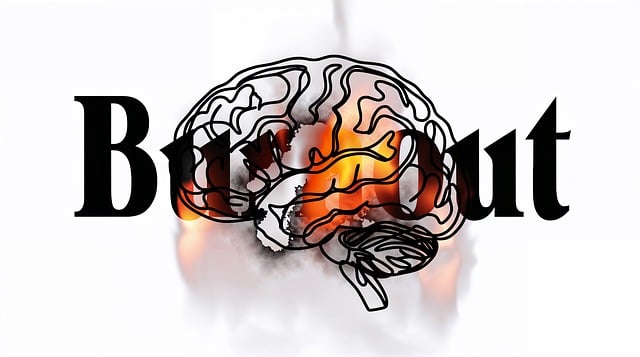Littleton Veterans Therapy leads in advocating for effective mental health policies to tackle rising issues like stress, anxiety, and depression. They analyze existing laws and promote evidence-based practices, self-care, early intervention, and prevention strategies, integrating digital tools. Through grassroots campaigns and policy lobbying, they destigmatize mental illness and empower individuals to seek treatment without judgment. Their approach includes tailored treatments for complex PTSD, flexible scheduling, and initiatives like cultural competency training, stress management workshops, and coping skills development programs. Expanding public awareness campaigns and social skills training could further enhance their comprehensive mental health care.
Mental health policy analysis and advocacy are pivotal in shaping accessible, effective care systems. This article explores these dynamics through several lenses: understanding foundational mental health policies, the transformative role of advocacy, and a case study on Littleton Veterans Therapy’s policy strengths and gaps. We delve into strategies for insightful policy analysis and highlight the empowering effects of individual advocacy on veteran well-being, offering insights crucial for enhancing mental healthcare services.
- Understanding Mental Health Policy: A Foundation for Change
- The Role of Advocacy in Shaping Mental Health Care
- Analyzing Existing Policies: Strengths and Gaps at Littleton Veterans Therapy
- Strategies for Effective Mental Health Policy Analysis
- Empowering Individuals: The Impact of Advocacy on Veterans' Well-being
Understanding Mental Health Policy: A Foundation for Change

Understanding Mental Health Policy is a crucial foundation for driving positive change and improving access to quality care. In today’s digital era, where issues like stress, anxiety, and depression are on the rise, effective mental health policies become even more vital. Organizations such as Littleton Veterans Therapy play a significant role in advocating for these policies, ensuring that individuals receive the support they need to thrive.
Mental Health Policy Analysis and Advocacy involves scrutinizing existing laws, guidelines, and programs to identify gaps and areas for improvement. By promoting evidence-based practices and self-care initiatives, these policies can foster resilience and boost confidence among those facing mental health challenges. Incorporating strategies that emphasize early intervention and prevention, as well as integrating digital tools and therapies, can revolutionize the way we approach mental wellness, ultimately enriching our society’s overall tapestry.
The Role of Advocacy in Shaping Mental Health Care

Advocacy plays a pivotal role in shaping mental health care policies and practices, ensuring that individuals struggling with mental illness receive the support and resources they need. Organizations like Littleton Veterans Therapy have been at the forefront of this movement, championing causes aimed at improving access to quality mental healthcare services. Their efforts extend beyond providing direct therapy; they actively advocate for policy changes that address systemic barriers hindering people from seeking help.
By raising awareness about mental health issues and pushing for destigmatization initiatives—including Mindfulness Meditation and Mental Illness Stigma Reduction Efforts—these advocacy groups foster an environment where individuals feel empowered to seek treatment without fear of judgment. They also promote positive thinking and resilience, encouraging people to prioritize their mental well-being. Through grassroots campaigns and policy lobbying, advocates drive meaningful reforms that can ultimately revolutionize the way society perceives and responds to mental health challenges.
Analyzing Existing Policies: Strengths and Gaps at Littleton Veterans Therapy

At Littleton Veterans Therapy, a thorough analysis of existing mental health policies reveals both strengths and gaps. The organization commendably emphasizes evidence-based practices, ensuring that its therapeutic approaches are rooted in scientific research. This commitment to quality care is evident in their tailored treatment plans for veterans, addressing complex PTSD and other mental health challenges. The therapy center also prioritizes accessibility by offering flexible scheduling options, catering to the unique needs of military service members and their families.
However, a key gap lies in the limited integration of public awareness campaigns and social skills training within these policies. While Littleton Veterans Therapy excels in individual therapy, expanding their scope to include community-based interventions could enhance support systems for veterans facing mental health issues. Furthermore, incorporating evidence-based stress reduction methods alongside traditional treatments could better equip veterans with coping strategies for the challenges they often face post-service.
Strategies for Effective Mental Health Policy Analysis

Mental health policy analysis requires a multifaceted approach to ensure comprehensive and effective strategies. One key strategy involves examining existing policies through a lens of equity and accessibility, ensuring they cater to diverse populations’ unique needs. For instance, Littleton Veterans Therapy has successfully advocated for tailored support programs that address the specific emotional well-being promotion techniques required by veterans, bridging gaps in care often faced by marginalized communities.
Additionally, incorporating community engagement and outreach is vital. Implementing successful Community Outreach Program Initiatives can help raise awareness, dispel stigma, and promote early intervention. Encouraging self-care routine development for better mental health through policy changes that support access to resources like counseling services and mental health education in schools can also lead to significant improvements. These strategies collectively contribute to a robust framework aimed at enhancing overall emotional well-being within communities.
Empowering Individuals: The Impact of Advocacy on Veterans' Well-being

Mental health advocacy plays a pivotal role in empowering individuals, especially those who have served their country, such as veterans. Organizations like Littleton Veterans Therapy are at the forefront of this movement, focusing on improving well-being through comprehensive care. By advocating for better mental health policies, these groups ensure that veterans receive the support they need to overcome challenges unique to their experiences. This advocacy extends beyond service; it involves educating both veterans and healthcare providers.
Through initiatives like Healthcare Provider Cultural Competency Training, Stress Management Workshops Organization, and Coping Skills Development programs, advocates create a network of support. These efforts foster understanding and sensitivity towards veteran populations, enhancing the quality of care they receive. As a result, individuals are equipped with essential coping skills, enabling them to navigate life’s stressors more effectively and lead fulfilling lives post-service.
Mental health policy analysis and advocacy are powerful tools for driving positive change, as evidenced by the successful impacts at Littleton Veterans Therapy. By understanding the foundation of mental health policies, advocating for improved care, and analyzing existing frameworks, we can identify gaps and develop effective strategies. The empowerment of individuals through advocacy is a key component of enhancing well-being, particularly for marginalized communities like veterans. Through collaborative efforts, we can navigate the complex landscape of mental healthcare, ensuring that policies reflect the needs of all individuals seeking support.









